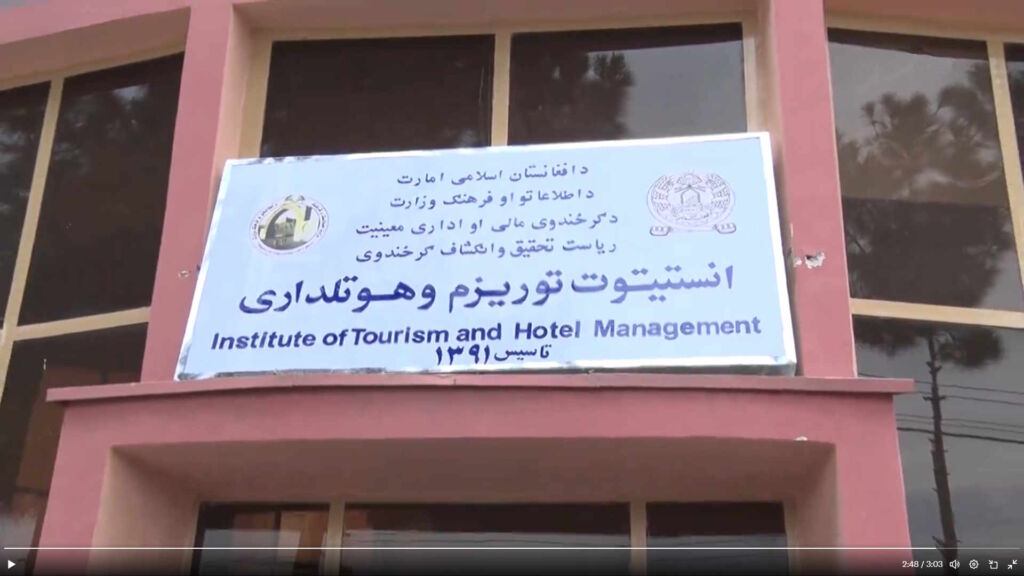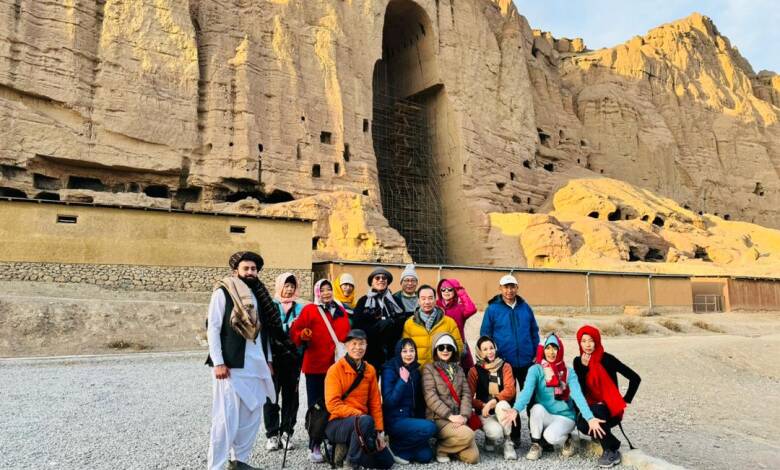Travel to Afghanistan remains a highly controversial topic. While the country boasts stunning natural beauty and a rich cultural heritage, decades of conflict and ongoing security concerns pose significant risks for tourists. The Taliban-led government is actively encouraging tourism, but travel advisories from many countries strongly discourage visiting due to safety concerns.
Two and a half years after the takeover, the Taliban-led government in Afghanistan has reopened the Institute of Tourism and Hospitality. This institute was established in 2012 under the Ministry of Information and Culture during the previous republic’s administration but was temporarily closed in 2021 when the Taliban came to power. The reopening is part of the Taliban government’s efforts to attract foreign tourists to Afghanistan. Currently, the institute has enrolled around a hundred students for professional education in tourism and hospitality. Notably, all these students are male, as the Taliban have imposed restrictions on female education beyond the sixth grade. Last week marked another academic year where Afghan girls were denied the right to education.

Since their return to power, the Taliban have attempted to assure foreigners that Afghanistan is a welcoming destination for tourists. Mullah Khairullah Khairkhah, Acting Minister of Information and Culture under the Taliban government, claims that security has been established in Afghanistan and encourages foreign tourists to visit confidently. Speaking at the reopening of the Institute of Tourism and Hospitality, Khairkhwa stated the Taliban’s commitment to facilitating travel for domestic and international tourists.
Despite the Taliban government’s efforts to counter what they term as “negative propaganda” about security in Afghanistan, several countries, including the United States , the United Kingdom and Canada, advise against travel to the country due to high-security risks and potential criminal threats to foreign visitors. Khairkhwa, while criticizing these opponents, argued that those who travel to Afghanistan under the Taliban’s rule would understand the realities on the ground. He emphasized the importance of providing good hospitality to tourists to improve Afghanistan’s image abroad, a stark contrast to the travel advisories issued by several countries.
Nevertheless, Afghanistan’s natural beauty and rich cultural and historical heritage remain significant attractions. Some tourists have visited Afghanistan recently. Dylan Harris, the founder of Lupine Travel, was quoted by the British newspaper The Independent as saying, “It’s actually safer to travel there now than it was before because the people we were trying to avoid before are the people in charge.” Additionally, some YouTubers and adventure seekers visit Afghanistan, sharing images and videos of daily life, as the Taliban seeks to project a softer image to the world by accommodating these visitors.
Hafiz Azizur Rahman, head of the National Environmental Protection Agency under the Taliban regime, stated, “Afghanistan’s strategic location between Central and South Asia, along with its rugged mountains, natural landscapes, historic sites, and pleasant climate, make it an attractive destination for tourists.”
The Taliban government’s reopening of the Institute of Tourism and Hospitality and assuring improved security signal their intent to revive Afghanistan’s tourism industry. However, this initiative faces significant hurdles. Decades of war and ongoing security concerns create a different reality for many than the one the Taliban portrays. Travel advisories from numerous countries and the high crime rate further deter potential tourists seeking a safe and relaxing vacation destination. While Afghanistan boasts undeniable beauty and cultural riches, attracting a significant number of foreign tourists will likely require a substantial improvement in security and a demonstrably more open and inclusive society.





